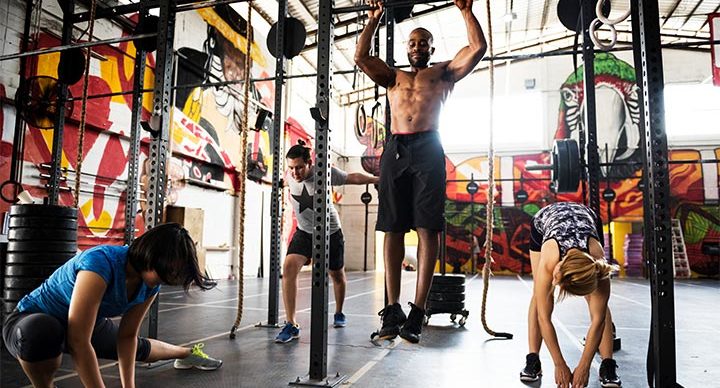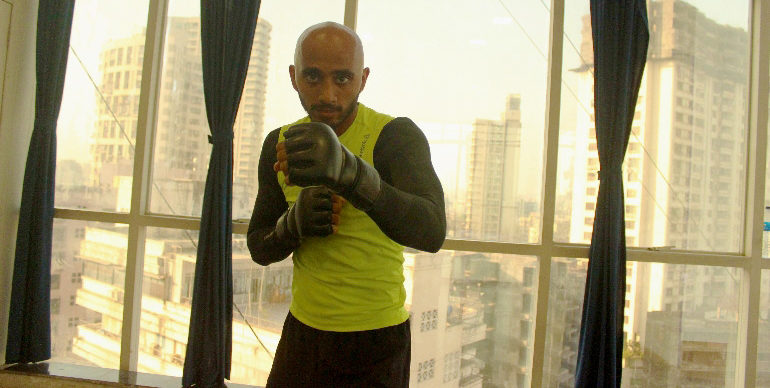
It is important for instructors and personal trainers to understand the basic principles that underlie exercise prescription for their clients as well as designing effective work out programs for their clients. Any trainer who does not have these foundations of knowledge cannot progress to advanced concepts. For people who want to know more about the foundations of a workout routine should also be aware of the 5 Basic Training Principles which are namely:
- Specificity
- Individualization
- Overload
- Progression
- Variation
Let us look at these in more detail:
Specificity
Basically the principle of specificity states that we basically get good at what we do and the improvements and adaptations that our bodies make as a result of training are specific to the types of training that we perform. When we perform resistance exercises the improvements in our strength will be specific to the particular muscles that we use, the length and the angles of the joints that are working and the speed at which we are moving. Training in one area can lead to improvement in performing certain tasks. For example if you train on a spinning cycle may improve your cycling speed but will not help you to better your running performance. Again if you train for long distances either outdoors or on the treadmill it may improve your stamina but it will have little effect on your running speed. In fact, speed and agility may even drop as a result of endurance training. What this implies is that the knowledgeable personal trainer will not make a football player or a tennis player do long-distance running during the competitive season when the need of the hour is for the client to be fast and explosive.
Individualization
Due to different genetic traits, every person reacts differently to the same exercises. Some clients may respond well to training while others will respond less and will need to work much harder to achieve the same results as the high responders. Basically in the world of fitness training what works for one person may not work for the next. Apart from genetics a lot of other factors also come into play such as age, medical history, posture, prior training, current fitness and so on. Before training a client, an in-depth conversation always forms the basis of the first session. During that session one can determine the client’s training experience, how well they have responded to exercise in the past and what forms of exercise has been working for them. The more information that a trainer has about a client, the better will be the exercise prescription and the success ration of the client in meeting his / her fitness goals will also be higher.
Overload
Exposing clients to Overload helps to place them under levels of physical stress that they are not used to under normal circumstances. With the right levels of stress and recovery, the body will adapt and become stronger than before. This is known as Positive Adaptation. If the levels of exercise stress are too low, then the trainer fails to create an overload and the body will not have enough drive to adapt and a training effect does not materialize. On the other hand, if the levels of stress are too high with less time for recovery, adaptation will happen at first but eventually progress will reduce or even come to a halt and continued training may lead to damage, injury or illness. This is known as Negative Adaptation.
Optimal overload is the maximum stress that is placed upon the client for optimum gains but without risk of injury. This point will again vary with each individual based on factors such as age, experience or genetics. While training with weights, the point of failure is the point at which the form and technique deteriorate and the risk of injury is increased. A good personal trainer will asses and identify the point of optimal overload when a client is exercising to prevent debiliating injuries. Which is why it is important for people to hire good fitness trainers who are educated on the nuances of personal training and help a client improve their health and not put them on a hospital bed!
Progression
As a person trains he / she gets stronger over time. Progression refers to the process of increasing the levels of stress placed upon the body in order to ensure that an overload as the body adapts and increases in strength. If a trainer does not make exercises more challenging as they get stronger, the difficulty of doing the exercise decreases to the point where overload does not happens and the client reaches a plateau in his / her fitness levels. You can see this phenomenon of stagnation at work at various gyms and yoga studios where people have been doing the same thing for years. When they started their bodies changed initially as it adapted to the new routines, exercises and asanas but after a period of six weeks, adaptation stopped and their body shape has remained the same ever since. Exercise has to progress to increasing levels of complexity and discomfort if we are to avoid plateauing.
Variation
Even after introducing exercise difficulties in order to maintain overload, one sees that the body does not respond to a particular training stimuli anymore after about 6 – 8 weeks of training. After this point of time, even if you keep increasing the weight one tries to lift eventually the exercise will become too hard and the client will eventually pass the point of optimal overload and increase his / her chances of injury. To avoid this from happening, a qualified personal trainer has to alter the exercises in order to surprise and challenge the body in different ways.
If you are a personal trainer you will know that these fundamentals are the basics of what you develop for every client. If you are client then these are helpful points to remember the next time you are at the gym or fitness studio! And if you would like to hire a personal fitness trainer in Mumbai or Delhi, we are not more than an arm’s length away!
Do not miss a single article!
Submit your email id to get new articles directly into your email inbox!
- Zumba Dance Fitness at Byjus - February 25, 2020
- History of Corporate Wellness Programs - February 18, 2020
- Yoga at a Conference - December 11, 2019




Add Review